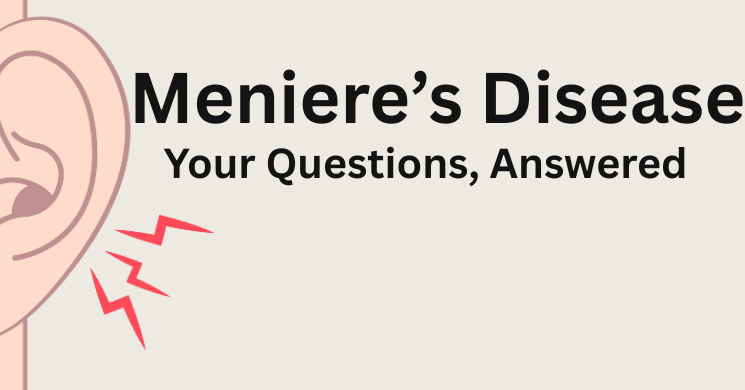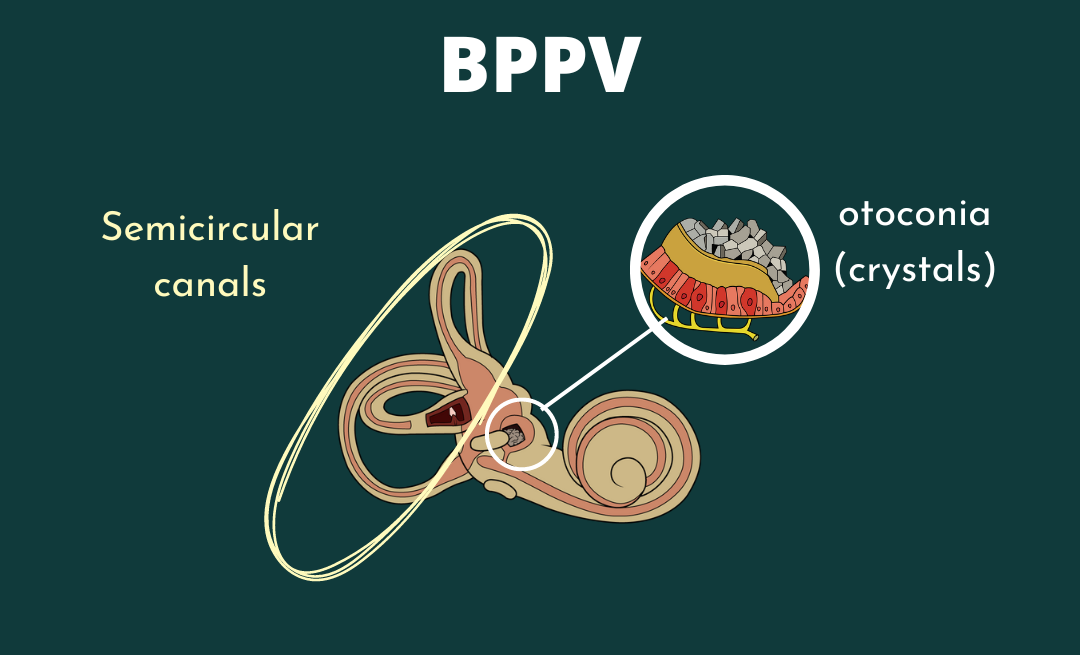The vestibular system is incredibly complex and in a perfect world it tells you, with impeccable accuracy, where you are in relationship to the rest of the world. It acts as a gyroscope – this means it measures angular velocity and maintains a perfect upright posture (plus, your vestibular system also measures linear velocity). It’s a pretty cool system, but when something goes wrong you could have a big problem.
Here’s what we are NOT focusing on today:
If you have a vestibular disorder you know that being upright can be a challenge, but why is it that a position of comfort, like lying down, is so problematic? I am not talking about Benign Paroxysmal Positional Vertigo (BPPV). BPPV is a mechanical issue where otoconia (ear crystals) fall from the otolith organs into the semicircular canals – this causes true room-spinning vertigo lasting from 15-60s with position changes. You can read more about it here. I also want to mention that I am not talking about MdDS. MdDS is a different condition secondary from disembarking from passive movement (like a bus, train, car, or train) and the symptoms does go away for weeks to months at a time. The treatment for that is the Dai Protocol and that’s NOT what we are talking about today. But you can read about it here.
Here’s what we are focusing on today:
The other kind of dizziness when you’re laying down, the kind where you feel like you’re on a boat when you’re in bed, happens for a few others reasons:
- Your vestibular system doesn’t understand what position you’re in
- Poor integration between your 3 balance systems
- Your vestibular system is fatigued
- Your bed is an uneven surface
- You have anxiety about ‘causing’ BPPV (rest assured, you can’t trigger it by laying down)
Let’s Break These Down:
Your Vestibular System Doesn’t Understand what Position you’re In
Your vestibular system’s full time job is to determine where you are in space. It helps keep you upright (the Vestibulospinal Reflex), it detects head motion and moves your eyes accordingly (Vestibuloocular Reflex), it determines head position on the neck & neck movement (Vestibulocollic Reflex), and more! If your body doesn’t know exactly where you are in space, it’s trying to find the answer. The chronic unknowing-ness, along with anxiety that you could be doing something wrong tends to ramp up the feeling of rocking when you’re laying in bed. I can’t say its completely abnormal. because it’s happened to me a few times before and it is incredibly frustrating.
Your vestibular system has a lot of responsibility, but it also relies on other systems and programs in your body to help you interpret what’s going on in your body. This brings us to our next topic.
Poor Integration Between Your 3 Balance Systems
You have three balance systems in your body. Proprioception, the ability for you to feel your surroundings, vision, your ability see your surroundings, and vestibular, your ability to track acceleration and motion. All three of these systems need to integrate together in order for you to know where you are in space and decrease the rocking and swaying sensations. When these three systems don’t integrate, the rocking and swaying can start. Reintegrating them through movement, behavioral change, and vestibular rehabilitation, and vestibular education is the solution here.
Your Vestibular System is Fatigued
An injured vestibular system is working twice as hard and not getting 100% function. Working double time is never easy, especially if your vestibular system is just trying to keep you upright all day. Your body’s #1 function is to protect your brain, and to keep you from hitting your head. Doing anything else besides keeping you upright is hard for your brain and vestibular system. this causes vestibular fatigue, brain fog, and other irritating symptoms. This causes rocking and swaying at the end of the day because that system is just so exhausted it can’t function well anymore.
Your Bed is an Uneven Surface
Your bed will never not be uneven. You are going to have a soft bed – and no, buying a firmer mattress is not going to help. Your proprioception knows that your bed is uneven, and that can be irritating for the system as a whole. If your proprioception system isn’t sending a system that although you’re on an uneven surface you are still, your vestibular system becomes confused, perceives the wrong information, and then makes you feel like you’re moving.
You have anxiety about ‘causing’ BPPV
Having a history of BPPV can be scary, and it can be the reason you don’t lay down flat. The first thing that I want to make clear is that you are not going to ’cause’ BPPV by laying down. I know it’s scary, but if you get a BPPV attack it’s because the otoconia are already displaced and then you laid down afterward. However avoidance and sleeping at an upright position will cause dizziness over time, can set
So What if you Want to Fix the Swaying?
All the information you need is in the “Laying Flat” module of Vestibular Group Fit. By being a Vestibular Group Fit member you will learn all the education and exercises I teach to my Vestibular Rehabilitation Patients.








